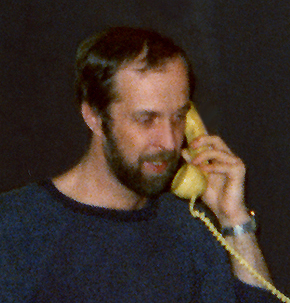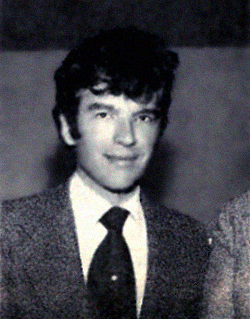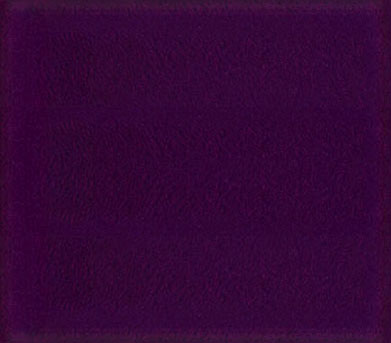Leonard
Roy
Frank
Author
of many
books,
among them
the Quotationary
Dictionary
(published by Random
House) and
one of the
most
prominent human
rights
activists, building
a nation-wide
human
rights movement,
exposing
the abuses of
psychiatry
and electroshock
treatment
in the U.S.
over the past
thirty
years.
Discovered
G. Mark Mulleian
in 1969,
introducing
his works
to the public
for the first time
at the
Frank
Gallery in
San Francisco,
launching
the artist's
career
on a national and
international
scale.
Lead
trainer in IBM
Mainframe
programming
and lead
instructor
at AT&T Professional
Development
Center and
a pro-active
consultant. Mr.
Arbegast
became aware of
Mulleian’s paintings
in the
mid
1970s,
became instrumental
in promoting
Mulleian’s
works through
his published
articles and
reproduction
lithograph
prints, which
would also lead
to
the development
of
this website,
www.mulleian.com
, designed
and
built by Arbegast
in dedication
to Mulleian’s
paintings.
Editor
and
consultant
of
biographical
texts, patron,
and confidante,
Paul Deegan first
met Mulleian
in 2002
and they
became close friends.
Inspired
by Mulleian's
paintings
and the artists
intuitive
intellectual
depth,
Deegan writes:
"superlatives
cannot
adequately
express
the experience
of seeing
Mulleian's
paintings.
Truly
amazing
work, both
technically
and conceptually,
and a sublime
pleasure
in discovering
and exploring
the
many layers that each
of
his paintings reveals."
Dirksen-Molloy
Productions
and broadcast television.
Producer
of television,
programming
since 1957 for
KTTV-LA, ABC
TV, and the
driving force behind
the new
music
revolution of
the mid-1970s.
Dirksen-Molloy
Productions
is also home to
public information
program, Positive
Spin, produced
by Unity Foundation
of San Francisco,
Los Angeles,
and other markets
nationally. Dirksen
discovered
Mulleian through
German magazines
and newspapers, and became
instrumental in public relations
in the world of television,
magazines and newspapers.
Dirksen-Molloy
Productions and
broadcast television. Damon
M. Molloy was
introduced
to Mulleian's works by Dirk
Dirksen in the mid-1990s.
Currently Dirksen and Damon
Molloy (of the
Dirksen-Molloy
Productions) are currently working
on
a broadcast
interview and documentary
on
Mulleian
and his paintings, soon to
be televised nation
wide.
Renowned
photographer
for national magazines and newspapers.
David Hough met Mulleian
for the first time in 1974
through a photographic
assignment
for After Dark Magazine
out of New York
for a special issue focused
on seventy two personalities
and pace-setters of the city
of San Francisco-
including notables
ranging from Saiji Ozawa
and Sylvester,
to Charles Pierce, Scott Beach, Herb
Caen, and
Mark
Mulleian. Soon
after, David Hough became
Mulleian''s
personal public relations
photographer.
Heritage
Gallery
Collection of Dr. Wayman
Spence, Physician,
Inventor, writer, publisher
and art collector.
Dr. Spence is chairman
of the board of W.R.
Spence Group, Inc. Wayman Spence
discovered the works
of Mulleian at a featured exhibit
at Gallery
On The Square, San
Francisco's North
Beach
in the late
1980s. Awe-stricken
by the show-piece
painting entitled
Dies Irae by Mulleian
in its incredible
power and technique,
Wayan Spence could
not resist
the painting,
and would
buy the rights
to publish
this work
for reproductions and
later, published
in an international
book, The Healing
Arts.
Artist's
model and writer,
met Mulleian in 1969
and, devoted
to Mulleian
and his works,
became
public relations
correspondent
for the artist. Ron
Raz's modeling
for Mulleian,
which the press
could not ignore,
propelled Raz's own modeling
career to new heights.
He was soon discovered
by New York's
Rock Shots
Publishing, which led him to
national
notoriety in print modeling.
In
1975,
while
standing on the
steps of the Grubstake just
off of Polk on Pine Street in
San Francisco, Mark
Mulleian would meet
Dean Glassbrook,
at a critical point in
Mulleian''s life. When
Glassbrook would turn the
corner and
find himself starring
into the glistening of a
gem ruby
(sewn on the upper
thigh of a Levis), and
the shimmer
of a Moroccan
coin necklace,
medallion, leads
Dean to immediate
eye to eye contact with
Mulleian.
In fascination,
as a freelance
writer, Dean Glassbrook
would write
several published
newspaper
articles on the artist through
the late 70's.
A
French
aristocrat and San Francisco
eccentric, artist and
photographer,
who lived for awhile
in Paris, Versailles,
and the south
of France,
where he found
unlimited
subject matter
for his photography.
Janvier
first discovered
Mulleian's
work at the Frank
Gallery in
1970, where they
would both eventually
meet
in 1971 and would become
lifelong friends,
a relationship
in which worldviews,
political analysis, creative
processes
and new ideas were shared
in an inexhaustible
dialogue for over
thirty years.
Noted
photographer,
promoter,
publisher and
owner of the
Visual Experience
Gallery.
Vandenberg introduced
himself to Mulleian
in 1973
and soon after
became a public
relations
manager
for the artist.
From 1976 through
1982 Vandenberg
arranged an
exclusive exhibit
of Mulleian's
paintings at his
San Francisco
gallery.
Public
relations man who
was the first
to bring to
the attention
of Herb Caen the paintings
of Mark Mulleian
in 1971.
In
January 1973,
The Advocate
(a national political gay newspaper,
the biggest of its
kind in the U.S.) published one
of the biggest feature
stories
on an individual
of its day, Mulleian's coming out, by freelance
writer Brian
Jennings.
Freelance
writer for the German-based
international
magazines
HIM and California
Freie Presse, produced
two feature stories
on Mulleian
which appeared
in 1973.
Publisher
of the Gay Crusader,
(a bi-weekly San Francisco
based periodical), publishes
several stories on Mulleian
from 1976-79.
This
Gold Tassel once hung in a
box seat at
San Francisco's
Fox Theater.
The Palace theater was torn down
in 1963.
As
a dancer of
the 1960s Deegan
trained with
Allen Howard
and Marguerite
Brach at Pacific Ballet
Studio and
Jack Cook
at S.F State, Deegan
studied classical mime
with Jacques
Lecoq at his Rue du
Bac school, and ballet
at the Place
Clichy
studios
in Paris, and later
with Barbara
Weisberger's
Pennsylvania
Ballet
Company, performed
with, guest soloists
Margot Fonteyn and
Rudolph
Nureyev.
Writer,
composed
a major
story on Mulleian
for United
Press
International.
Writer
Stanley
Medders,
one of
Americas noted conservationists
and prolific
writer on
the environment for
two decades
of the 1970s
and 80s, published
an insightful
article on Mark
Mulleian
in 1972. Mr. Medders, acclaimed
for his
numerous feature
contributions to “National
Parks Conservation
Magazine” as well as to “California
Living” (a
special feature of
the weekend editions
of the
San Francisco
Examiner
and Chronicle), became
a powerful
and
respected
voice in protecting
our national
parks
and deserts
through
his writings.
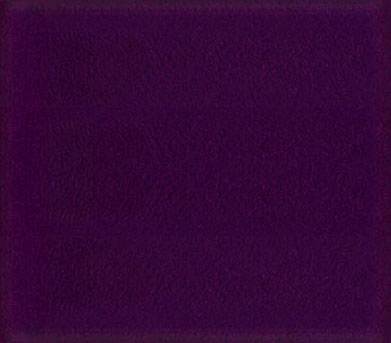
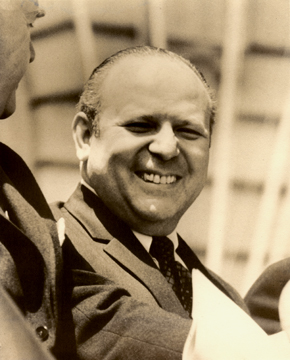
Leo
Hills, owner
of the Continental Art Gallery
on Stockton
Street,
(at San Francisco’s Union
Square location),
in collaboration with
Leonard
Roy Frank,
arranged
Mulleian’s first
feature exhibit
with Beniamino
Buffano in
1969. This would
lead to
Mulleian’s
ultimate exhibit
at the Frank Gallery,
also with Buffano.
Upon Bufano's
death in 1970, manager
Leonard Frank arranged
an ongoing exclusive
exhibit of Mulleian's
paintings which lasted
through the mid
1970s. The Frank Gallery
became a landmark
exhibition venue in San
Francisco.
Writer
and head
curator for the
Stockton
Museum,
composed
articles
on Mulleian
which
appeared in
major
northern California
newspapers in 1976.
In
1972 Mr.
Medders
produced
the insightful
and perceptive
article on the artist
entitled
“Portrait
Of A Man As A Young
Artist”, a comprehensive
study describing the
artist’s transcendent
insights,
written
in a personal, novelistic
style after
spending
a year studying the artist,
his work
and public
reaction
to his paintings.
Dean
Goodman,
playwright,
actor, theatre
critic and freelance
writer,
was one of
the first
to do what proved to be
the biggest
story on Mulleian
during the 70’s; an in-depth
article which
appeared
in 1973 in In Touch Magazine, a national publication
based out of Los Angeles.
|
In
Dedication
To
those
who by their
tireless
effort
and
dedication
help
make
possible
in bringing
forth
into the
public
consciousness
the works
of G.
Mark
Mulleian.
|
In
2005,
Bill
McCarthy and
artist
G. Mark Mulleian first met
through
a film
project being
devloped by Damon Molloy,
chief
editor at
the
Dirkson/Molloy
Production Studios
in San Francisco.
Molloy
was putting
together
a biographical
documentary of
the artist's
paintings which featured
Mulleian's
signature
work,
Dies Irae.
Molloy
shared
details
of his post-production
progress
with
Bill
McCarthy,
who was
highly
impressed,
but most
especially
so with
Dies Irae.
McCarthy
immediately
spoke with
the artist
by phone
and expressed
his admiration
of the work.
This
brief
conversation
eventually
led to Mulleian’s
being featured
on numerous
airings
of Positive
Spin, in a
series
of documentaries
exploring
the artist’s
work and activism since 2006.
President
of
Unity
Foundation,
television producer
and host
of Positive
Spin (a national
news magazine)


